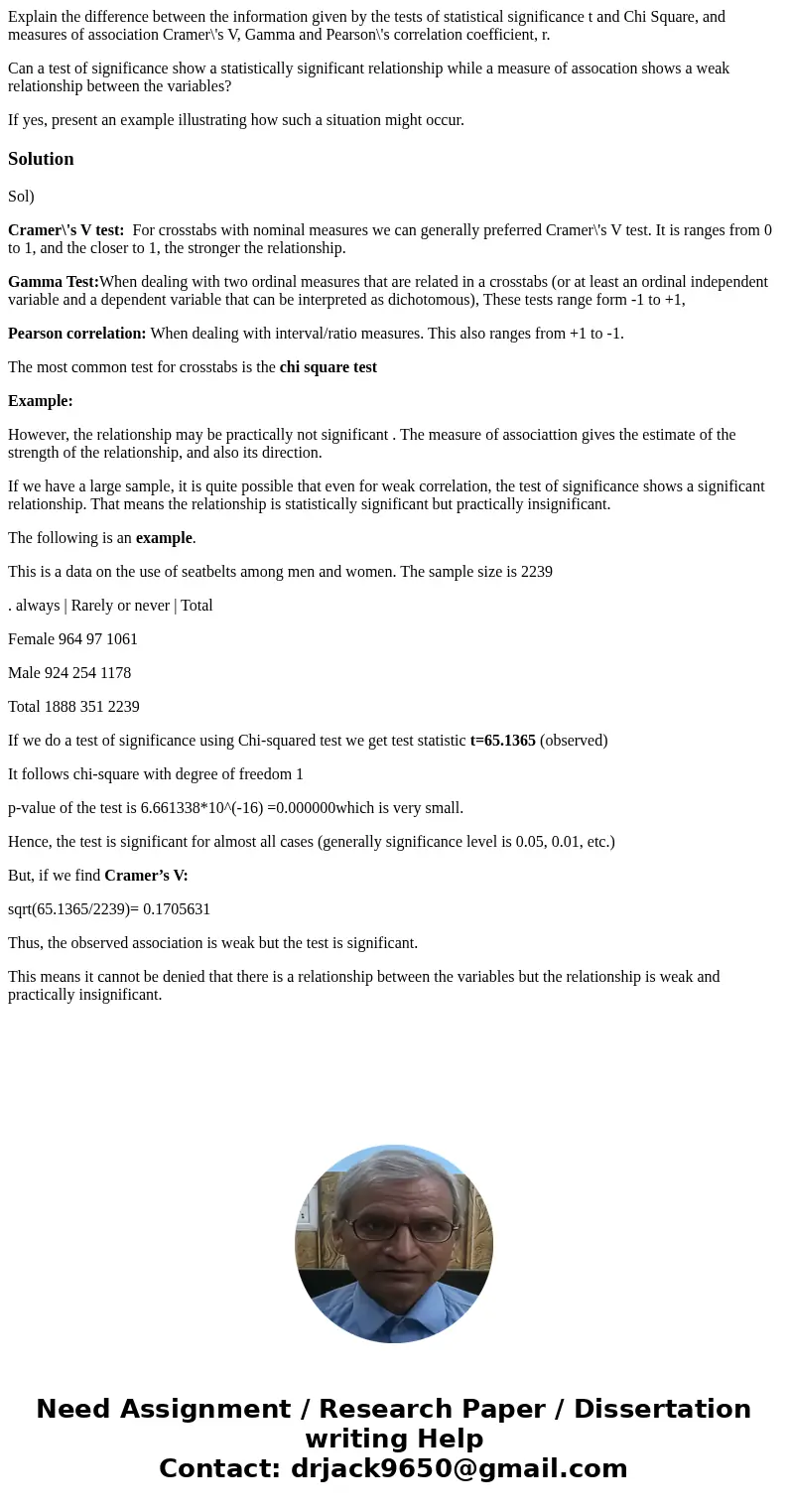Explain the difference between the information given by the
Explain the difference between the information given by the tests of statistical significance t and Chi Square, and measures of association Cramer\'s V, Gamma and Pearson\'s correlation coefficient, r.
Can a test of significance show a statistically significant relationship while a measure of assocation shows a weak relationship between the variables?
If yes, present an example illustrating how such a situation might occur.
Solution
Sol)
Cramer\'s V test: For crosstabs with nominal measures we can generally preferred Cramer\'s V test. It is ranges from 0 to 1, and the closer to 1, the stronger the relationship.
Gamma Test:When dealing with two ordinal measures that are related in a crosstabs (or at least an ordinal independent variable and a dependent variable that can be interpreted as dichotomous), These tests range form -1 to +1,
Pearson correlation: When dealing with interval/ratio measures. This also ranges from +1 to -1.
The most common test for crosstabs is the chi square test
Example:
However, the relationship may be practically not significant . The measure of associattion gives the estimate of the strength of the relationship, and also its direction.
If we have a large sample, it is quite possible that even for weak correlation, the test of significance shows a significant relationship. That means the relationship is statistically significant but practically insignificant.
The following is an example.
This is a data on the use of seatbelts among men and women. The sample size is 2239
. always | Rarely or never | Total
Female 964 97 1061
Male 924 254 1178
Total 1888 351 2239
If we do a test of significance using Chi-squared test we get test statistic t=65.1365 (observed)
It follows chi-square with degree of freedom 1
p-value of the test is 6.661338*10^(-16) =0.000000which is very small.
Hence, the test is significant for almost all cases (generally significance level is 0.05, 0.01, etc.)
But, if we find Cramer’s V:
sqrt(65.1365/2239)= 0.1705631
Thus, the observed association is weak but the test is significant.
This means it cannot be denied that there is a relationship between the variables but the relationship is weak and practically insignificant.

 Homework Sourse
Homework Sourse